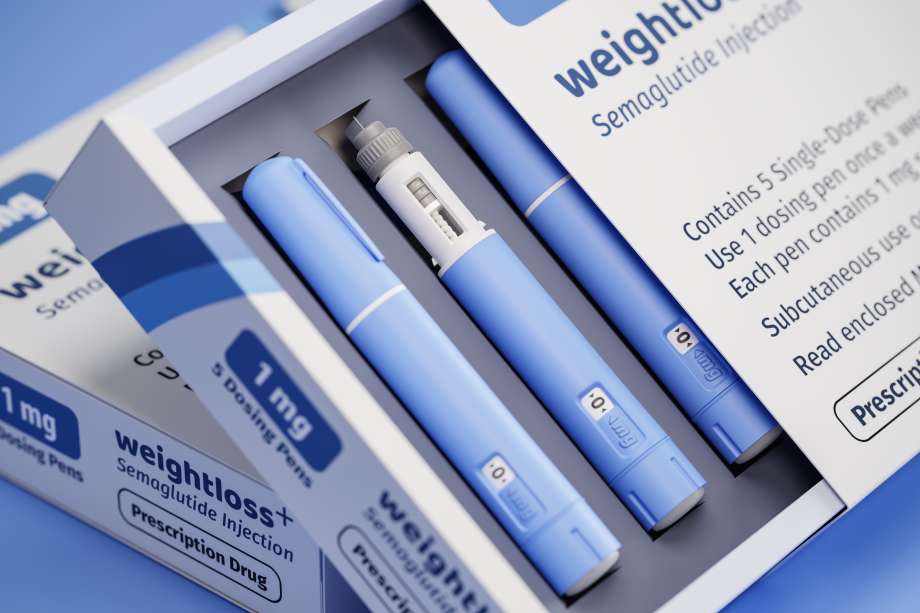Every serious runner or triathlete knows that training plans, gear, and nutrition matter — but your blood can reveal the real story behind your performance. Subtle nutrient deficiencies, hormonal shifts, or metabolic imbalances can limit endurance long before you feel them. Understanding your body’s internal data allows you to train smarter, recover faster, and prevent plateaus that stall even the most dedicated athletes.
Modern blood screening has evolved from basic cholesterol and CBC panels into a precision tool for optimizing performance. For athletes around St. Louis and Creve Coeur, this type of testing is no longer just for pros — it’s now accessible through forward-thinking practices like concierge medicine.
Why Every Endurance Athlete Should Get Blood Panels
Your body’s internal chemistry drives how well you adapt to training stress. Fatigue, poor sleep, slow recovery, or missed PRs can all trace back to something measurable: low iron, disrupted cortisol rhythms, or depleted amino acids. Blood testing turns vague symptoms into actionable data.
According to a 2022 study in the British Journal of Sports Medicine, over 40% of endurance athletes show at least one performance-limiting deficiency when tested during heavy training blocks — most commonly in iron, vitamin D, or thyroid markers. These findings emphasize that athletic fatigue isn’t just about overtraining; it’s often about underlying imbalances that no amount of extra sleep or caffeine will fix.
What Performance Blood Panels Measure (and Why It Matters)
Let’s look at what matters most for runners and triathletes aiming for long-term progress.
1. Iron, Ferritin, and Hemoglobin
Iron carries oxygen to muscles. When it’s low, so is your endurance. Female athletes, vegetarians, and high-mileage runners are especially at risk for depleted iron stores. Testing ferritin (your iron storage protein) alongside hemoglobin gives a clearer picture than a basic CBC alone.
2. Vitamin D
Essential for bone strength and muscle recovery, vitamin D also influences testosterone, inflammation, and immune function. Even outdoor athletes in Missouri are often low, especially during winter months. Optimal levels improve both endurance and power output.
3. Thyroid Function (TSH, Free T3, Free T4)
Your thyroid acts as your metabolic thermostat. Too little hormone, and you feel sluggish and gain weight; too much, and you risk overtraining symptoms and muscle breakdown. Fine-tuning thyroid balance is critical for maintaining energy stability across long race cycles.
4. Cortisol and DHEA
These hormones show how your body handles stress. Elevated cortisol paired with low DHEA can signal under-recovery, inadequate fueling, or emotional stress that’s bleeding into training. Adjusting intensity and sleep based on these results can prevent burnout and injury.
5. Testosterone and Estrogen
Sex hormones drive muscle repair, energy, and motivation. Chronic endurance training can suppress testosterone in men and disrupt estrogen balance in women. Monitoring these markers helps maintain both strength and recovery capacity year-round.
6. Electrolytes and Hydration Status
Even minor sodium or potassium imbalances can sabotage long-distance events. Regular checks help fine-tune hydration and prevent cramping or late-race fatigue.
7. Inflammatory Markers (CRP, hs-CRP)
Low-grade inflammation can hinder recovery, reduce power, and increase the risk of soft-tissue injuries. Tracking C-reactive protein (CRP) levels lets you know when your training load is edging into overtraining territory.
8. Liver and Kidney Function
These systems filter metabolic waste — vital when training pushes your physiology to its limits. Elevated enzymes can indicate the need for recovery days or nutrition adjustments.
9. Glucose and Insulin Sensitivity
Endurance performance depends on efficient fuel utilization. Checking fasting glucose, insulin, and hemoglobin A1C reveals how well your body manages glycogen storage and energy turnover — crucial for triathletes who balance long aerobic efforts with high-intensity sessions.
10. Micronutrients (B12, Folate, Magnesium, Zinc)
Micronutrients fine-tune energy metabolism, red blood cell formation, and neuromuscular function. Deficiencies here can quietly sap performance long before fatigue becomes noticeable.
Advanced Athlete Diagnostics at Three Rivers Concierge Medicine
At Three Rivers Concierge Medicine in Creve Coeur, our team uses advanced diagnostic testing to help runners, cyclists, and triathletes reach peak condition. We go beyond routine blood work — analyzing biomarkers tied to oxygen delivery, mitochondrial efficiency, and recovery hormones. Our concierge doctors interpret every result in the context of your training cycle, ensuring your body is as finely tuned as your bike or race plan. From VO₂ and lactate data to hormone optimization, we give you the full physiological picture you need to perform at your best.
How Often Should Athletes Get Blood Tests?
For most serious recreational athletes, twice a year is ideal: once at baseline (off-season or before ramping up training), and again during peak season. These checkpoints capture how your body adapts to training stress and recovery demands.
Elite or high-volume athletes — those training 10+ hours a week — benefit from quarterly panels, especially if experimenting with new diets, altitude training, or supplements. Frequent testing turns guesswork into targeted intervention, allowing you to correct imbalances before they become performance problems.
Key Patterns Blood Work Reveals in Athletes
Here’s what concierge doctors often find in endurance athletes:
- Low ferritin despite “normal” hemoglobin — meaning oxygen delivery is still limited.
- Low vitamin D in late winter, contributing to fatigue or slow recovery.
- Elevated cortisol from combined training and life stress, leading to plateaus.
- Suboptimal thyroid markers causing inconsistent performance days.
- Low testosterone or estrogen due to under-fueling or excessive mileage.
When corrected through nutrition, supplementation, or schedule adjustments, most athletes see faster recovery, steadier energy, and improved endurance within weeks.
How Blood Testing Complements Other Performance Metrics
You might already track pace, heart rate variability, or lactate threshold — but none of those reveal your internal readiness for stress. Blood testing fills that gap. It integrates with training metrics by explaining why you perform the way you do.
- VO₂ max tells you your aerobic capacity — blood work shows if you’re fueling it properly.
- Lactate testing reveals where fatigue starts — blood biomarkers show if inflammation or cortisol are driving that threshold.
- Resting heart rate and HRV show readiness — blood data confirms whether hormones and electrolytes support recovery.
In essence, blood panels translate raw performance data into physiological context. That’s the difference between guessing and mastering your training response.
Two Key Stats to Know
1. A 2023 meta-analysis in the European Journal of Applied Physiology found that athletes who underwent individualized blood testing and nutrition interventions improved endurance performance by an average of 9.4% over eight weeks compared to those using standard training alone.
2. The American College of Sports Medicine reports that runners with ferritin levels below 30 ng/mL are up to 3 times more likely to experience mid-season performance decline due to impaired oxygen transport.
These numbers show that optimizing your internal physiology is one of the highest-ROI investments an athlete can make.
What to Expect from a Concierge Medicine Approach
Traditional clinics often offer generic panels and one-off results. Concierge practices like Three Rivers take a more strategic approach. Instead of isolated lab values, they evaluate your full physiological pattern — connecting blood chemistry with your training load, nutrition habits, and recovery data.
Expect your concierge doctor to review trends across multiple tests, not just snapshots. They’ll consider:
- Training phase (base, build, taper)
- Dietary habits (e.g., low-carb, plant-based, or high-protein regimens)
- Supplement usage (iron, creatine, electrolytes, etc.)
- Sleep quality and recovery metrics
This holistic model ensures you’re not just “within range,” but within your optimal range — the sweet spot where performance and recovery align.
What Tests Are Worth Adding for Runners and Triathletes
Beyond standard panels, consider adding specialized biomarkers that give deeper insight into endurance physiology:
- Lactate Dehydrogenase (LDH): Indicates muscular stress and recovery readiness.
- CK (Creatine Kinase): Measures muscle breakdown after intense sessions.
- hs-CRP: Tracks systemic inflammation that can stall progress.
- Omega-3 Index: Reflects anti-inflammatory balance and cardiovascular resilience.
- Ferritin + Soluble Transferrin Receptor (sTfR): Detects early-stage iron deficiency before anemia develops.
- Testosterone:Cortisol Ratio: An underused marker for overtraining and recovery capacity.
Combined with your routine panels, these markers can identify when to push harder — and when to rest.
Integrating Results into Training
Once you have data, the goal is to use it. For example:
- If ferritin is low, increase iron intake and add vitamin C for absorption.
- If cortisol is high, build in more rest or swap high-intensity days for technique work.
- If vitamin D is suboptimal, add supplementation through the winter.
- If thyroid levels drift, review calorie intake and sleep consistency.
When each adjustment is based on a measurable marker, training becomes precision-driven — and results follow faster.
Why This Matters for the Long Game
Endurance athletes often walk a fine line between peak performance and overtraining. Without internal monitoring, that line can blur quickly. Blood work acts as your early-warning system, catching problems while they’re still fixable.
Think of it as maintenance for the engine you rely on every day. Instead of waiting for fatigue or injury to force rest, you can make proactive micro-adjustments that extend your athletic lifespan and protect your health.
Summary: Turning Blood Data into an Advantage
- Blood testing gives insight into the chemistry behind your training results.
- Key panels include iron, thyroid, hormones, inflammation, and nutrient markers.
- Regular monitoring (2–4× per year) ensures your progress stays on track.
- Concierge medicine brings individualized analysis and actionable feedback.
- Three Rivers Concierge Medicine offers athlete-focused diagnostics that translate complex labs into smarter training strategies.
Whether you’re prepping for your first triathlon or shaving seconds off a marathon PR, understanding your blood data transforms performance from a guessing game into a science-backed plan for success.
Ready to Make Healthcare Work for You?
- Personal approach
- Round-the-clock support
- Exclusive care
If you’re ready to experience healthcare that works around your schedule, offers direct access, and prioritizes your long-term health, it’s time to consider concierge medicine. At Three Rivers Concierge Medicine, we specialize in providing personalized, proactive care tailored to the needs of busy professionals. Call us today at (314) 744-5914 or get a free consultation with our doctor and take the first step toward healthcare that truly fits your life.



